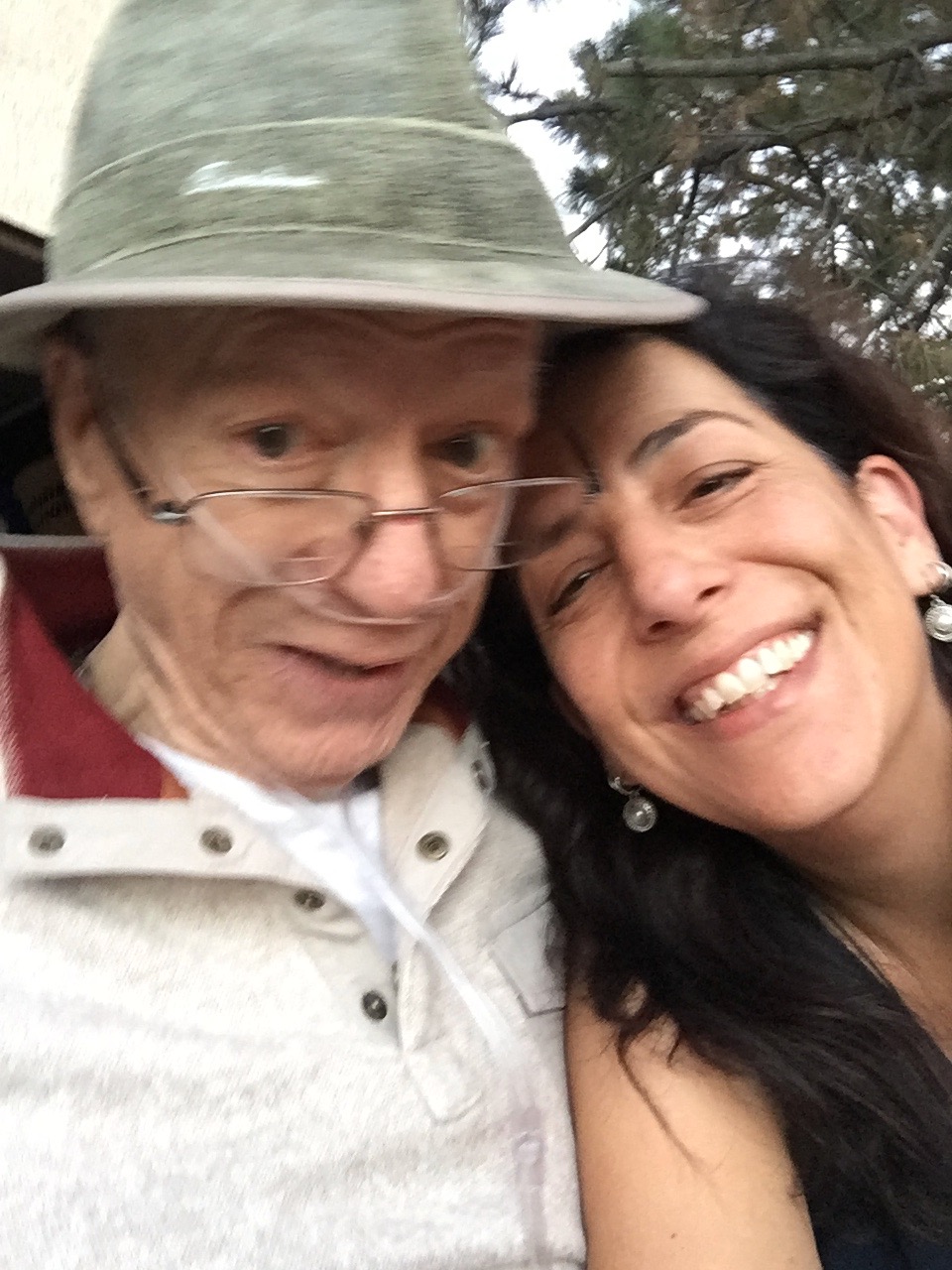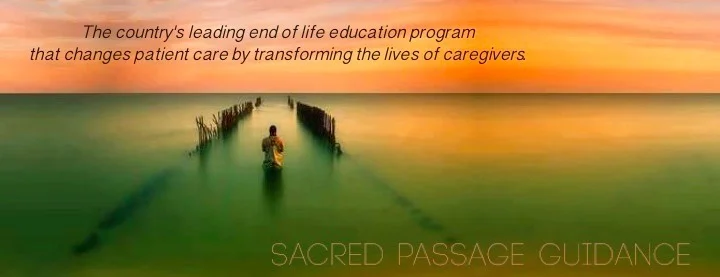Holding Space with Death by Marie David
/“Just as when weaving
Once reaches the end
With fine threads woven throughout,
So is the life of humans”
~Buddha
An old family friend, Ellen, asked if my mother and I would visit her parents, who weren’t doing well and if we could check on them. Up until a few months earlier, my mom and I were in the intense fire of tending to my dad 24/7 in the last days of his life. Life after my father’s passing had felt foreign and spacious. We knew all too well about the lingering desire for more time with him and wanted to make sure our friends had all the time they needed.
Ellen’s father, Dr. West, had been diagnosed with cancer. He’d had a stent placed in his liver where the cancer had eaten away the duct. We arrived at their family home, greeted at the sidewalk by his wife Sarah. She had walked outside in the blazing sun to meet us as I helped my mother out of the car. Sarah was a bright and active ninety-year old woman who had spent her entire adult life raising their five children with her husband and running a successful dental practice. She invited us inside warning, “The house is hot! Rob can’t tolerate the AC.”
While we meandered our way to the dining area, Dr. West carefully maneuvered his walker to his place at the head of the table. In our conversation with Sarah it became quickly apparent that we weren’t talking about death. Even though Ellen wanted us to talk with her parents about what was happening…about dying, we had to hold a wide enough space around dying, to sit with it first.
I dropped my agenda and urgency for whatever I hoped to accomplish in our conversation and sat in the sweltering heat to simply listen and visit. I heard the beautiful story of how they met. Sarah was in nursing school, the rules for dating were strict then and Dr. West talked about it with such animation. I was taken as I watched the way his eyes would light up telling of their adventures and how he married her on the day of her graduation. He glanced so intently at Sarah with such fondness, as if he was talking about what happened just yesterday.
He apologized for the heat, they chatted adorably about fixing the leaky kitchen faucet, the currency markets, visiting a friend from church who had recently lost a spouse, and every now and then Sarah would pick up a piece of paper from the stack of papers on another table and ask me what I thought of it. I looked at the paper each time and said, “This is Rob’s lab report?” She said “yes” and explained that he had a stent placed in his liver that would have to be replaced every twelve weeks because Rob was not a candidate for a more lasting solution. I told Sarah each time, “I’m not a medical professional, I have no idea what this means.” After the third time however, I held the lab report in my hand and looked across the table at Rob and asked, “Dr. West, what does this mean to you? I see this is a result for cancer found here near your liver. Is it confined to your liver? Do you think there’s more?”
With a long pause, he held my gaze for what felt like an eternity. His eyes were blue, clear and shining with aliveness. Without answering me, he looked over at Sarah and said, “I haven’t told you this before, but I don’t want to do this again. I don’t want to go through another procedure. My throat and tongue are blistered. I can’t eat. I can’t do this anymore.” She listened to him, hearing him without responding.
I asked if they had contacted hospice for support, and Dr. West was adamant that he didn’t need them. He was afraid it would allow the government to infringe on his social security or his property. I told him that Ellen, his eldest daughter, had asked us to visit, that she wanted to stay with them to help, and again there were objections, he said, “I don’t want to be a burden.”
“A burden?” I asked. Without ever mentioning dying, I told Dr. West how grateful I was that my father allowed me to care for him throughout the last year of his life. “It was a privilege and a gift to me. It was tough, you know, juggling my kids and my job,” I said. “It was no fun imposing myself in the middle of my parent’s life together. But I’d give anything to go back, to be with him again.”
I shared with Dr. West my memories of the last year with my father, trying to help my dad get better, to fatten him up so he could go home, so that he and my mom could resume their life together, but that never happened. It wasn’t like we never talked about dying. I remember laying my head on my father’s chest one day and tearfully choking out the words, “I am so grateful for you in my life, Dad.” Like Stephen Jenkinson says, “it’s not easy loving someone you know is going to leave you.” I shared that I knew how hard it must be to love when you know you have to leave, and how I tried to focus on the living that we had left with my dad.
The Wests only had weeks left together before Rob passed. I didn’t hear much about those last days, but they did get Hospice and Ellen was able to spend the last weeks of his life caring for him. I get that there is so much vulnerability around dying. My dad had done a lot for me in my life, but allowing me to be with him and care for him in the last year of his life was the greatest thing he had ever done for me, a precious gift. End of Life Care allows us to weave together the last threads of our legacy, giving us something greater than more time.
Me and my father, October 2016
Marie David is an artist, mother of five, grandmother of three and End of Life Doula serving as the Executive Director for the Conscious Dying Institute.
Train In One Of The Top 10 Fastest Growing Jobs Of The Future
How Do I Practice for Death by Tarron Estes
The Evolution Of The End Of Life Doula Movement by Jeff Markel
The Grace of Dementia by Sara Bensman
Holding Space with Death by Marie David
Becoming a Sacred Passage Doula by Shirley Grant
Initiation Of A Death Doula By Kristie Zahn
Why Me? The Calling to Become an End of Life Doula
A Physician Reflects of End of Life Training





